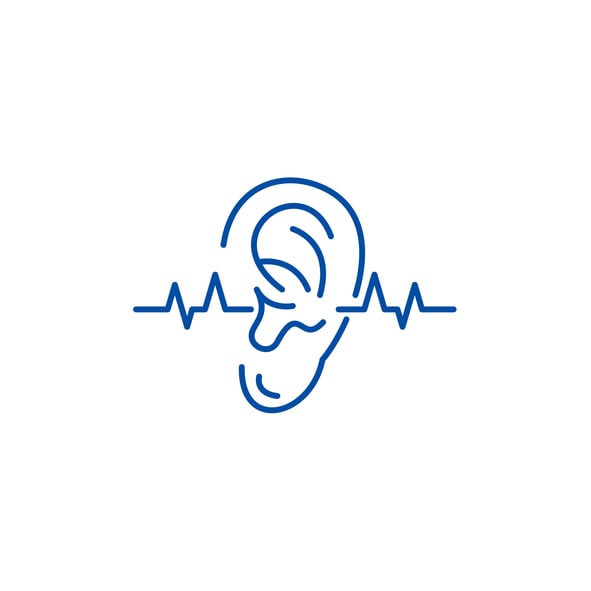“1 in 4 people ages 20 to 69 who reported that their hearing was good to excellent were found to have hearing damage.” (AARP)
Perhaps you hear perfectly well during quiet days at home but don’t when there’s loud noise — and so you don’t even consider that you might have a hearing problem. After all, it’s because of the background noise, not because of a problem you have, right? Well, maybe.
There’s a condition called “hidden hearing loss” or “hidden hearing disorder” which refers to a specific problem with hearing in places like noisy restaurants where the levels of sound are high. You might see lips moving and know that someone else is talking, but you can’t hear what they’re saying.
People with this condition often don’t consult an audiologist, shares the director of the Lauer Tinnitus Research Center at Massachusetts Eye and Ear. And even if they’re tested, he adds, hidden hearing loss can’t be diagnosed during standard hearing tests.
Massachusetts Eye and Ear research revealed that about 10% of people who complained about their ability pass a hearing test. If those people were having trouble understanding speech under certain circumstances, were they actually experiencing hidden hearing loss?
Causes of Hidden Hearing Disorder
Part of the problem is that we live in a louder world. There’s workplace-related noise, but there’s also sporting events, traffic, rock concerts, leaf blowers and more — and even low-level noise can cause hidden hearing loss over time. To make matters worse, 70% of people who have exposure to loud noise don’t regularly use hearing protection. Some don’t use it at all.
In the past, scientists had believed that, if exposed to loud noises, a person would either be immediately affected or recover from that noise quickly. But researchers are finding that people who have been exposed to loud noises can continue to have hearing loss at a faster rate than those who haven’t had as much noise exposure.
In 2009, Massachusetts Eye and Ear came out with what’s called the definitive study about hidden hearing loss. Mice exposed to 100-decibel noise for two hours — something comparable to lawnmower use — lost 50% of their synapses from the ears to the brain. Hair cells in the ears were still fine but the electrical connections to the brain degraded.
This disorder was considered as “hidden” because there aren’t standard hearing tests to check for this synapse damage. In reality, nearly 90% of the connections to your brain could be lost before it would show in audiogram testing.
Researchers are able to use electrodes to examine brain activity and this can confirm that a problem exists. Currently, though, only an autopsy can confirm the synapse damage.
Other researchers, we should note, question these findings, believing the problem is more complex for people with this type of hearing loss.
In the meantime, it makes sense to protect your hearing.
Hearing Health: How to Protect Yourself
First, be aware of the sounds around you. We can become too accustomed to loud sounds in our noisy world, which means we often don’t protect ourselves enough. So:
- wear noise-canceling headphones or earplugs if there will potentially be loud noises where you go
- keep the volume down when you’re listening to music, watching television, and so forth
If you have been exposed to loud noise — either as a one-time significant event or over time — and have trouble understanding speech when there is background noise, talk to your doctor about your hearing health. Share specifics about your noise exposure and your ability to hear, and ask for recommendations.
You can do a quick self-check at Sound Cloud to see what levels of sound give you trouble. Doing that self-check may allow you to more accurately describe the levels of sound where you have difficulty hearing and may provide your doctor with more specific information for diagnostic purposes.










